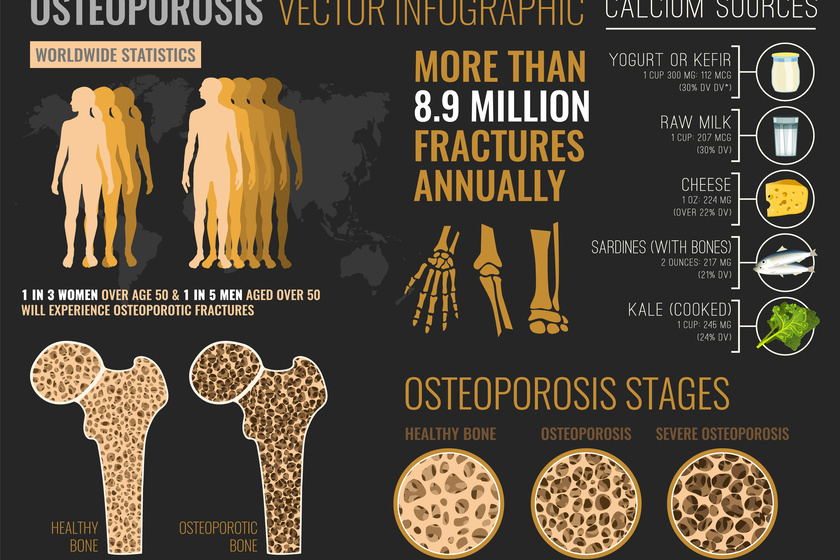Staying healthy and avoiding fall accidents are essential for a high-quality life as an aging adult. If you develop osteoporosis, a bone-thinning disease, your bones could be thin enough to be broken or fractured in any minor fall, resulting in a frustrating lifestyle.
However, this bone-thinning disease is not a normal part of aging, contrary to general opinion. Even though many older adults have the disease, it is not regarded as a disease that comes with advancing age. In this article, we explore how you can prevent the disease from affecting your bones.
Consume Vitamin D
Different nutrients help different parts of the body, and for the bones, vitamin D is one of the nutrients that help strengthen them. Before you start consuming vitamin D, it is essential that you consult a doctor to know your daily recommended dose.
The current recommendation for daily consumption of vitamin D is 600 IU, and you can easily get this from various foods and supplements. To get vitamin D from food, you can start eating tuna, salmon, catfish, sardines, eels, and mackerel, as they are all fatty fish serving as natural sources of the needed vitamin. Ensure you get a Vitamin D supplement if your daily meals don’t satisfy your vitamin requirements.
Engage in Physical Exercise
Bones and muscles get stronger and harder the more you exercise them. When you engage in physical activities, you create an opportunity for your body to activate all parts and build total-body strength. And, the stronger you are, the less likely your bones will break.
You can engage in resistance exercises such as weight lifting or resistance band training because they best strengthen muscles. Also, you may try cardio exercises as they will help you build muscular endurance, ensuring your muscles are constantly reinforcing your bones. To make the exercises fun, you can perform them with your close friends or in a larger group. Engaging in such group workouts will help you stay motivated to exercise.
Consume Calcium
When anyone mentions a nutrient that helps the bone, it is usually calcium. You should contact your health care provider to find out the daily recommended amount of calcium. An estimate is 1,000 – 1,200 mg per day, and you can get this from foods and supplements.
Calcium-providing foods include leafy vegetables like turnip greens, bok choy, kale, and broccoli. You can also have salmon, sardines, cheese, milk, and yogurt. Ensure that you have at least one calcium-providing food daily, and if you cannot complete the recommended amount through food, use some calcium supplements.
Stay Active in an Independent Living Community
If you are interested in retiring to an independent living community where you will be cared for and able to mix with fellow retirees, Morada Pantego is your place. At Morada Pantego, you will enjoy our senior-centric health and fitness programs to strengthen the body, among other benefits. You will also have access to our delightful dining experience, where you get three exquisite chef-prepared meals daily. Be sure to contact us for more information.







